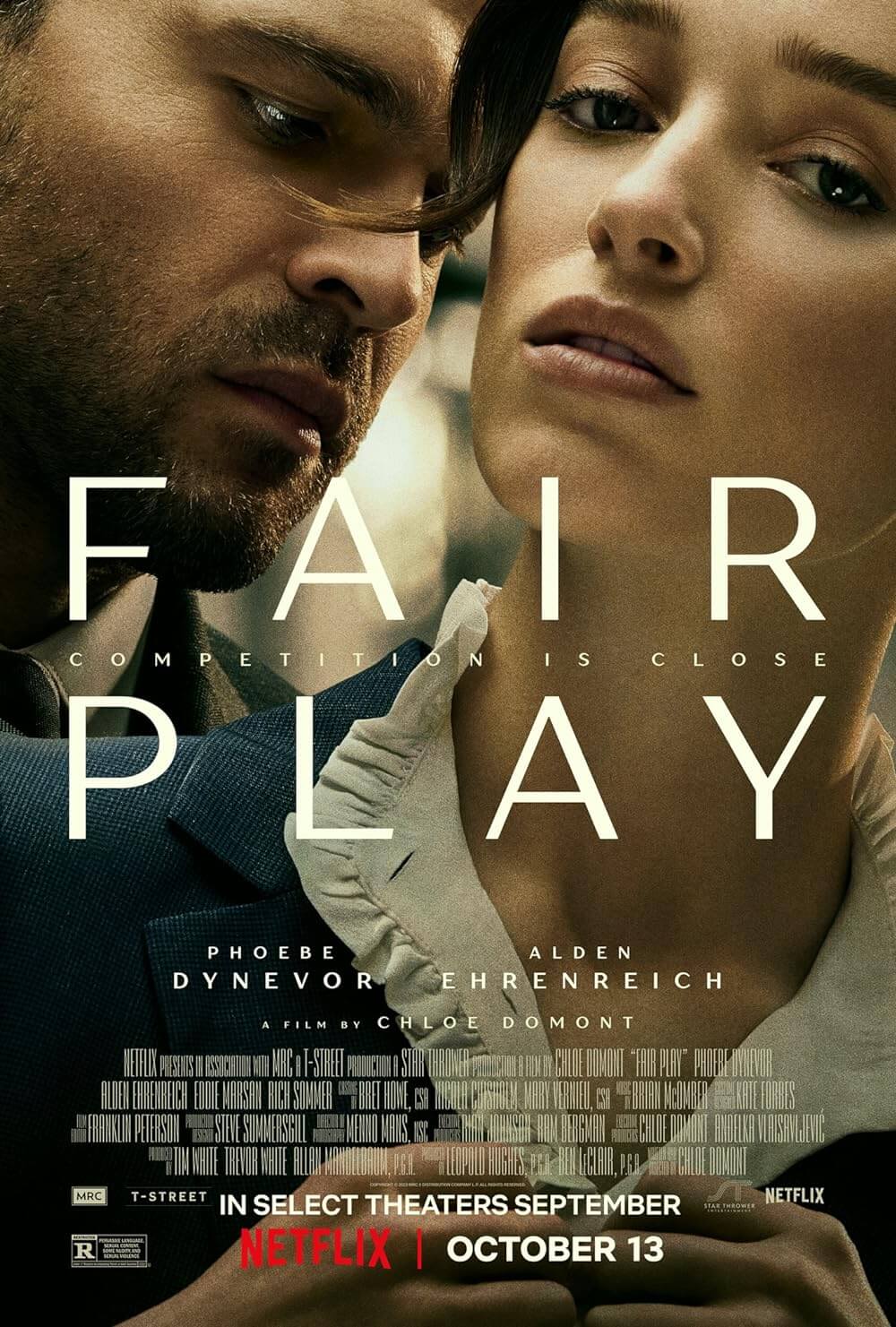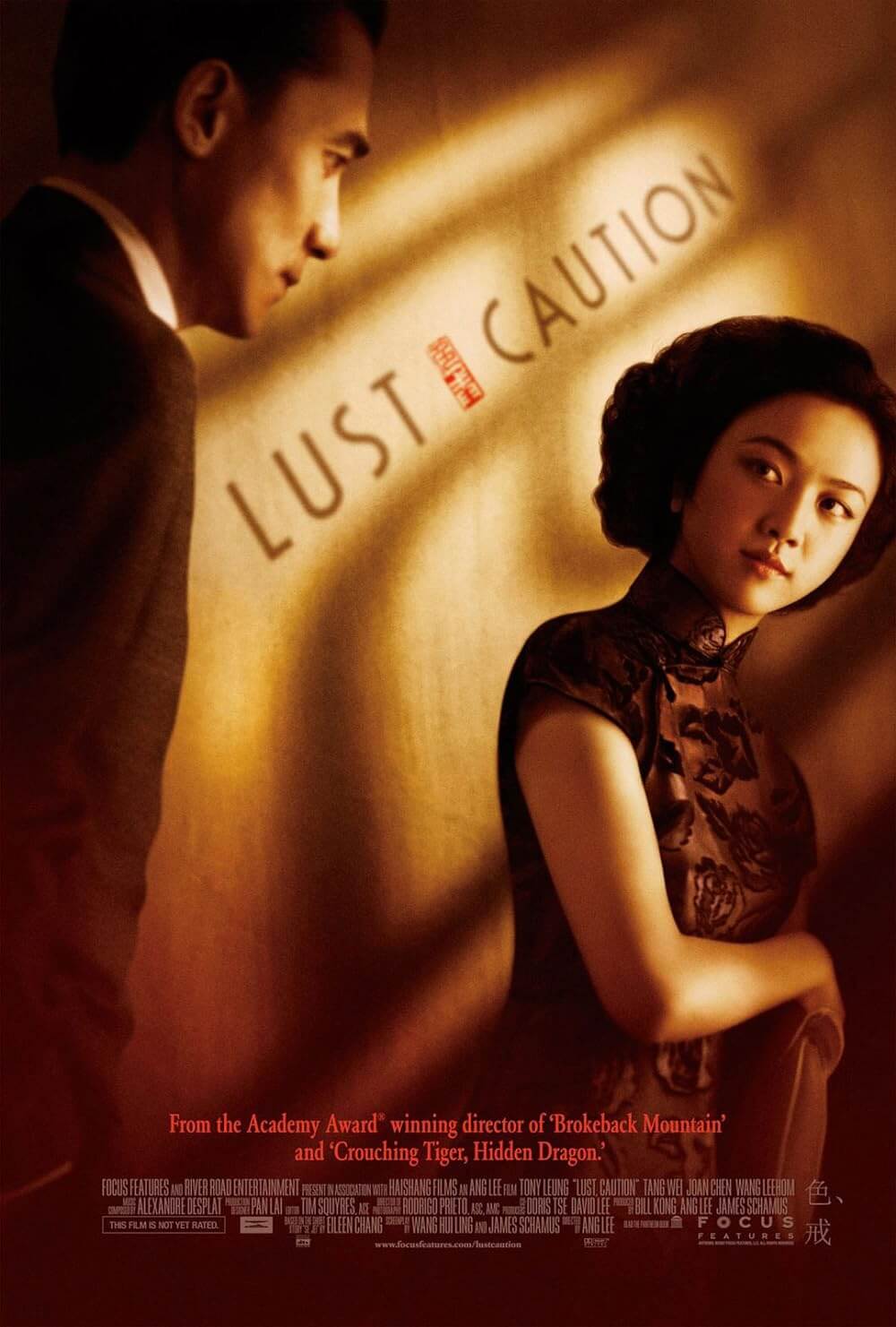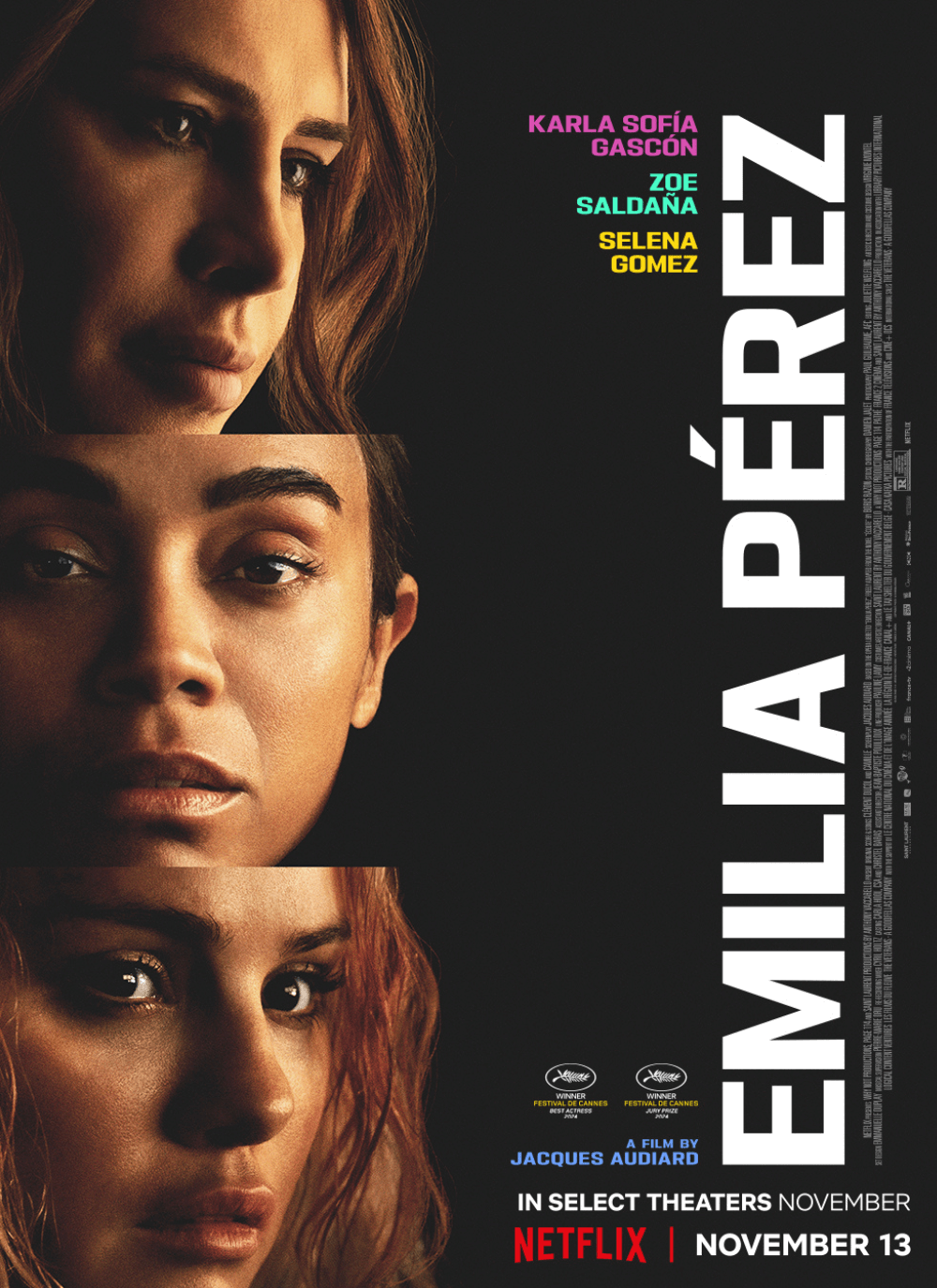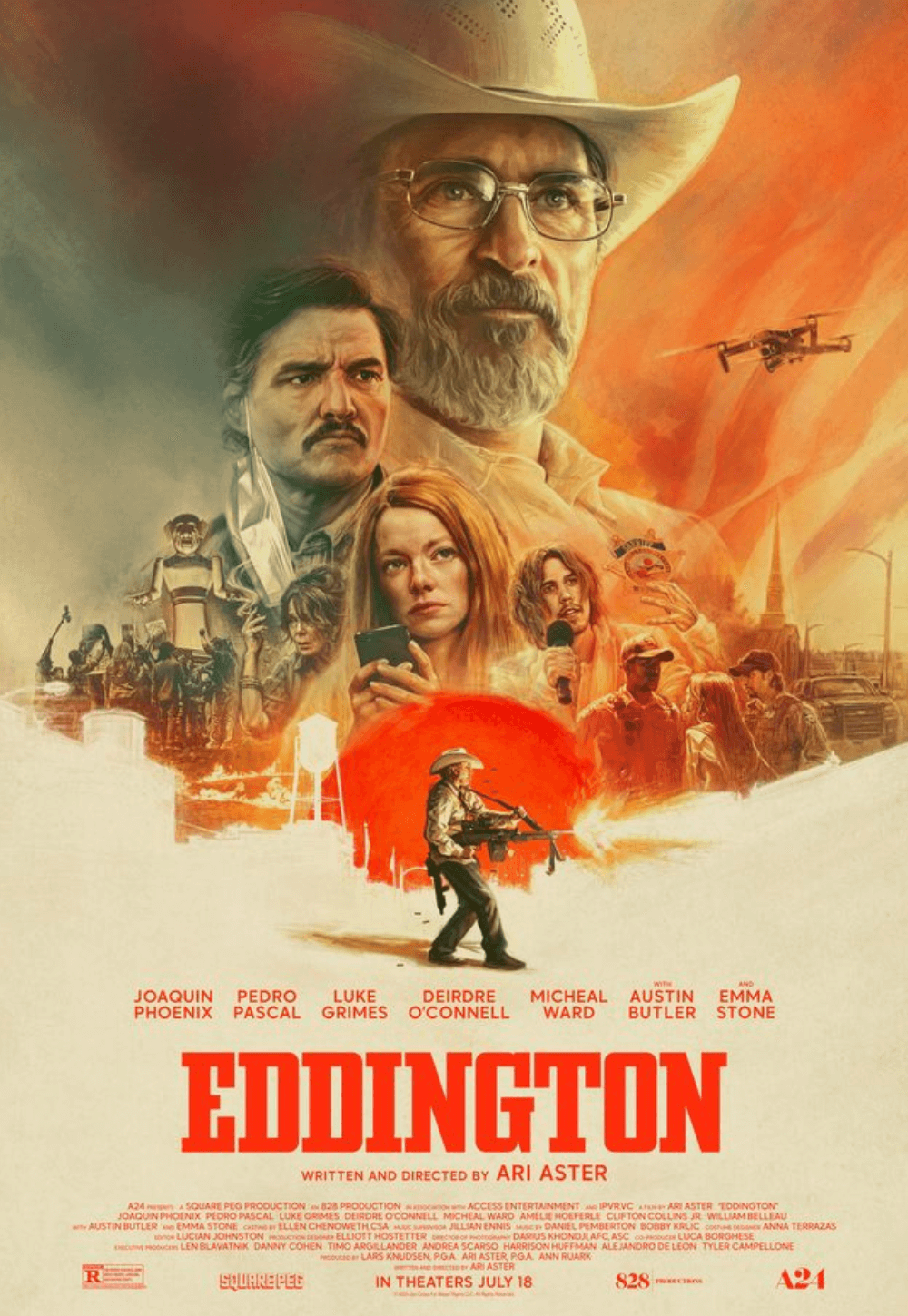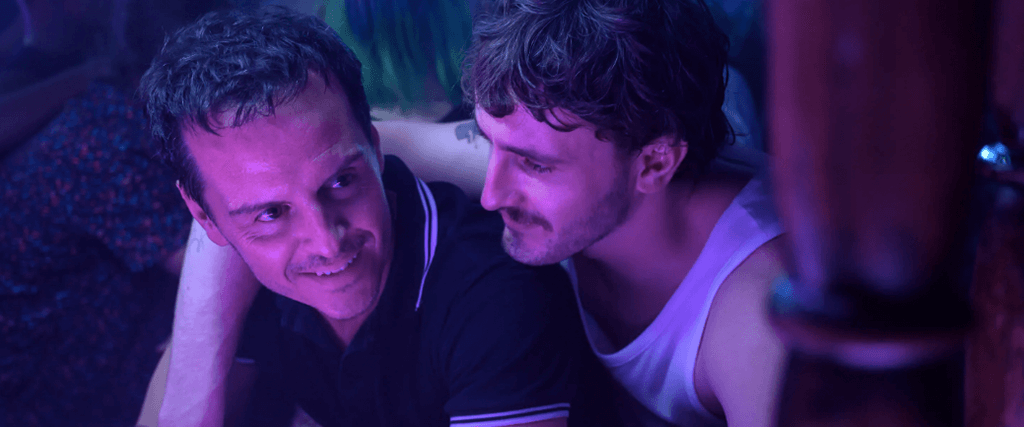
All of Us Strangers
By Brian Eggert |
Note: This film was originally screened at the 2023 Twin Cities Film Fest and reviewed on October 23, 2023. Below is an expansion of the original review. The film arrives in theaters on December 22, 2023.
Andrew Scott and Paul Mescal give raw, sublimely devastating performances of quiet intensity in Andrew Haigh’s All of Us Strangers, an aching exploration of solitude, artistic creation, memory, and the ghosts of long-gone family members. The writer-director of Weekend (2011) and 45 Years (2015) adapts Taichi Yamada’s 1987 novel, Strangers, but instead of a straightforward book-to-screen translation, he draws from somewhere profoundly personal. In a resounding performance, Scott stars a screenwriter who ruminates on the loss of his parents for his latest project, and the character shares more than a few qualities with Haigh as a fortysomething queer filmmaker. Rooted in unhealed emotions and situations that could register as clichés in another filmmaker’s hands, Haigh’s greatest achievement here might be the casting, giving the stars of TV’s Fleabag and last year’s Aftersun, respectively, another showcase for their incredible talent. The material may have a familiar bent, recalling A Ghost Story (2017) at times, but its effect is overwhelming.
Scott plays the contemplative Adam, who lives in a London high-rise, one of the only tenants in a newly constructed building. Laboring over his latest screenplay that explores his childhood in 1987, the year his parents died in a car accident, Adam rummages through the artifacts of his past—reruns of Top of the Pops and a bin of old belongings. He also takes day trips by train to his childhood home in rural England, visiting familiar spots from his past. While there, his father (Jamie Bell) spots him and gestures to follow. At first, it’s not entirely clear that Adam’s parents have died, or whether or not what we’re seeing is real. But Adam visits his childhood home, having been absent for many years now, and finds his mother (Claire Foy) overjoyed to see him in disorienting yet curiously cozy scenes. Looking in on his late parents in this way, Adam can have conversations that he never could in life. He comes out to his mother, and her response (“What parent wants to think that about their child?”) flattens him. But when he confronts his father—whom Adam has lived longer than—about a particular parenting choice, the reaction isn’t what he expected.
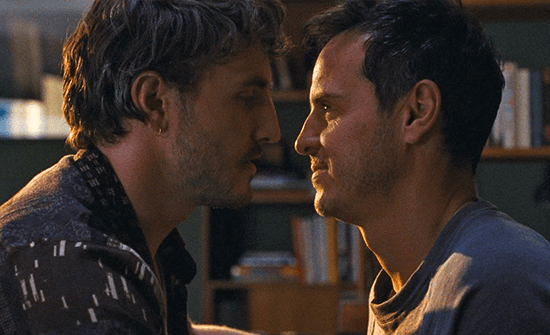 At the same time, Adam meets Harry (Mescal), who drunkenly knocks on Adam’s apartment door after they spot each other through the window. Although Adam initially turns down Harry’s forward advance, they share a solitude that soon prompts Adam to start a romance with his neighbor from a few stories down. What begins with an erotic exchange of pot and sexual openness evolves into the two men bonding over their pain, from discussing their experiences growing up gay, to their preferences between the labels “queer” or “gay,” to their relationships with their parents. As a writer, Adam confronts his parents’ deaths in ways he seemingly never has before, while Harry’s pain is less specific and contained inside, yet no less familiar. Harry attempts to disguise his damaged persona, covering up his isolation and ache with substances and his immersion in their new relationship. But with Harry’s lines such as “I know how easy it can be to stop caring about yourself,” Mescale makes the character’s pain palpable.
At the same time, Adam meets Harry (Mescal), who drunkenly knocks on Adam’s apartment door after they spot each other through the window. Although Adam initially turns down Harry’s forward advance, they share a solitude that soon prompts Adam to start a romance with his neighbor from a few stories down. What begins with an erotic exchange of pot and sexual openness evolves into the two men bonding over their pain, from discussing their experiences growing up gay, to their preferences between the labels “queer” or “gay,” to their relationships with their parents. As a writer, Adam confronts his parents’ deaths in ways he seemingly never has before, while Harry’s pain is less specific and contained inside, yet no less familiar. Harry attempts to disguise his damaged persona, covering up his isolation and ache with substances and his immersion in their new relationship. But with Harry’s lines such as “I know how easy it can be to stop caring about yourself,” Mescale makes the character’s pain palpable.
Even though it’s an open-wound-of-a-film, Haigh lends a dreamlike, at times even Lynchian quality to All of Us Strangers. Adam’s trips home register as the mental work of a writer exploring his past, suggesting that perhaps those train rides to his childhood home occur in his head. “Memory train?” I scribbled in my notes. When Adam is drawn further into Harry’s orbit, their romance grows. They visit a club and lose themselves in ketamine—a mind-splitting experience for Adam, recalling scenes of fractured transition in Lost Highway (1997). Along with his interest in Adam’s unambiguous queer identity, and how acceptance of such identities have changed between 1987 and 2023, Haigh embraces the protagonist’s subconscious ambiguity, submerging Adam and the viewer into ethereal but emotionally concentrated scenes of long-overdue reconciliation. Adam’s meeting with his parents in a shopping mall chain restaurant is an unlikely spot for a final visit, but it’s so honest that anywhere less specific may have felt self-consciously arty.
Visually, the film unfolds with an astral, otherworldly quality thanks to cinematographer Jamie D. Ramsay’s lensing on 35mm film stock. An early scene of Adam regarding the horizon out of his apartment window looks phantasmagoric, with the blue sky set afire by the sunrise, drawing a vital haziness and uncertainty in the film grain. Haigh and editor Jonathan Alberts create a fluid visual rhythm with scenes that don’t follow a beginning, middle, and end structure. Instead, they seem to overlap in imperceptible ways, echoed by Emilie Levienaise-Farrouch’s score that resists melody in favor of a soundscape. Even the choices on the soundtrack—including nostalgic hits from Fine Young Cannibals and The Housemartins, and a particularly heartbreaking use of the Pet Shop Boys’ cover of “Always On My Mind”—have an indie inflection, tinged with the same sadness and delicacy that pervades the film. Haigh’s rather metaphysical mise-en-scène is so intricate, and its spellcasting so absolute, that one may be too mesmerized to notice he puts just as much thought into the filmmaking as the emotional tenderness.
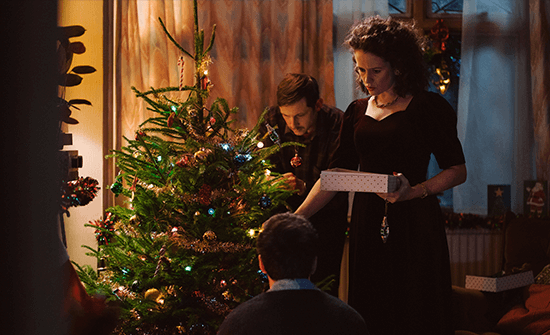 If All of Us Strangers feels elusive or between states of being, that’s an intentional choice by Haigh, whose portrait of Adam’s loneliness, writerly sensibilities, and queer life put him not at odds with but outside of normal space and time—into a headspace that is distinct and somewhat removed but also at home within that distance. Haigh captures this not only in formal choices but also in his storytelling structure. When Adam attempts to bring Harry into his ghost world, Haigh challenges our understanding of what is real and what is imagined. How much takes place in Adam’s head? Are the ghosts real, or is Adam’s imagination conjuring them for some deeper psychological need? These questions are further complicated by the ending, which lends itself to interpretation—a rewarding debate, and one I had with several fellow critics. I’m not sure the reveal works in terms of story logic, but like all aspects of the film, Haigh takes what might have been a twisty, gimmicky conclusion, and turns it into something resounding and poignant.
If All of Us Strangers feels elusive or between states of being, that’s an intentional choice by Haigh, whose portrait of Adam’s loneliness, writerly sensibilities, and queer life put him not at odds with but outside of normal space and time—into a headspace that is distinct and somewhat removed but also at home within that distance. Haigh captures this not only in formal choices but also in his storytelling structure. When Adam attempts to bring Harry into his ghost world, Haigh challenges our understanding of what is real and what is imagined. How much takes place in Adam’s head? Are the ghosts real, or is Adam’s imagination conjuring them for some deeper psychological need? These questions are further complicated by the ending, which lends itself to interpretation—a rewarding debate, and one I had with several fellow critics. I’m not sure the reveal works in terms of story logic, but like all aspects of the film, Haigh takes what might have been a twisty, gimmicky conclusion, and turns it into something resounding and poignant.
Haigh seems to say what we perceive becomes our reality, even if our perceptions are rooted in memories and ghosts, or projections of ghosts. However, when we spend too much time inside an illusory mindset dependent on the past, those memories can destabilize our present and future. Haigh never resorts to cheap tricks to explore these ideas. Every moment, no matter how small, feels intimate, personal, and specific—devoid of the winking or mawkish irony that another filmmaker might be tempted to apply (see A Ghost Story). The final moments may seem almost sentimental, with their starry deployment of Frankie Goes to Hollywood’s “The Power of Love”—bound to be a divisive, confounding sequence for many—but there’s an overwhelming personal quality to every choice in All of Us Strangers that registers as genuine and feeling, even during its more abstract moments.
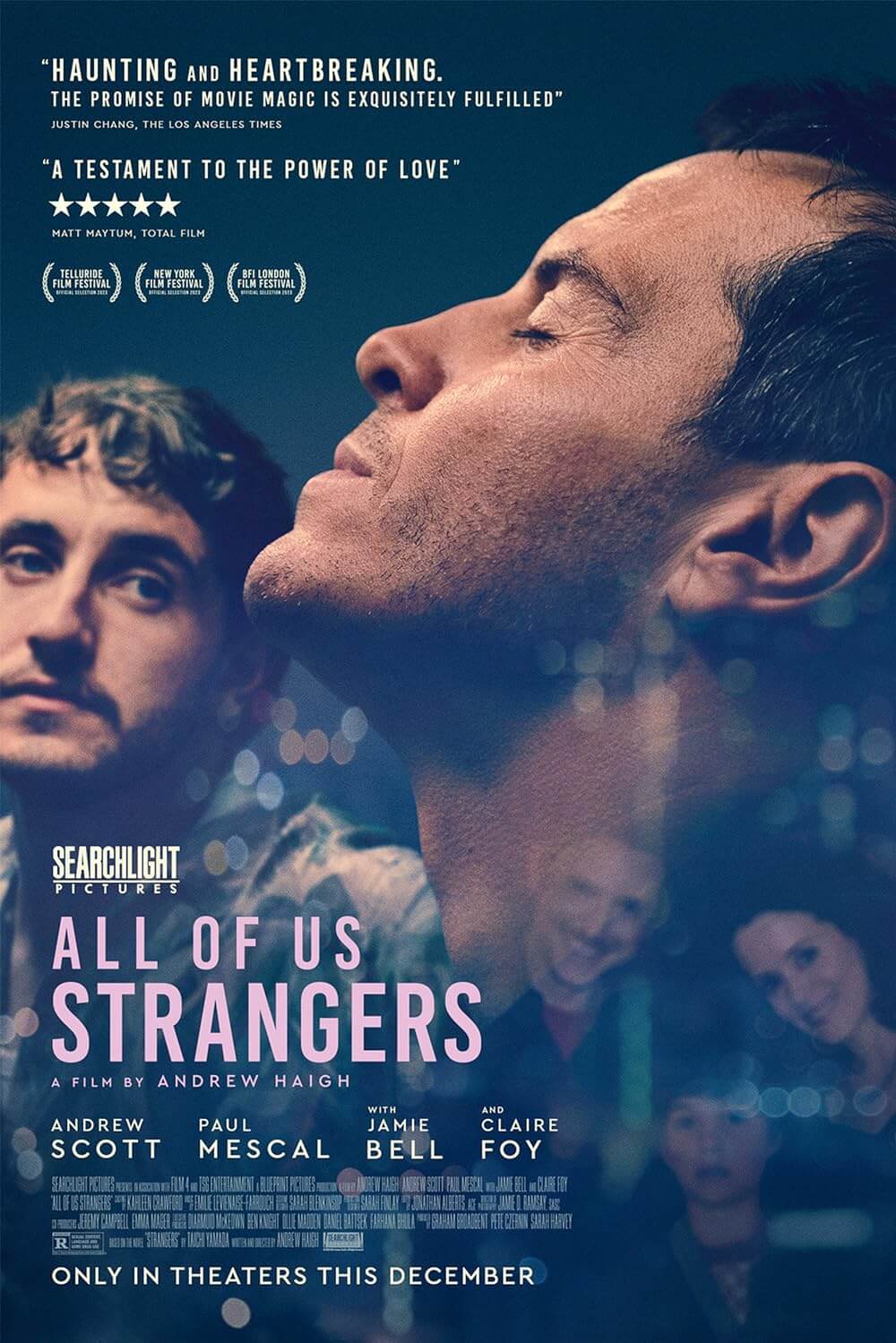
Unlock More from Deep Focus Review
To keep Deep Focus Review independent, I rely on the generous support of readers like you. By joining our Patreon community or making a one-time donation, you’ll help cover site maintenance and research materials so I can focus on creating more movie reviews and critical analysis. Patrons receive early access to reviews and essays, plus a closer connection to a community of fellow film lovers. If you value my work, please consider supporting DFR on Patreon or show your support in other ways.
Thank you for your readership!
Brian Eggert | Critic, Founder
Deep Focus Review


